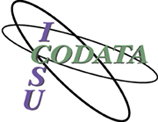International Council for Science : Committee on Data for Science and Technology
![]()
< home > < newsletter > < discussion list > < data science journal > < contact > < members area >
C O D A T A
CODATA
Special Group on Environmental Ecosystems Conservation
WORKSHOP REPORT June 16-18, 1999
The Second Workshop of the CODATA Special Group on Environmental Ecosystems Conservation (Chair: Prof. Yu.Arsky, VINITI, Moscow) was held on June 16-18, 1999 at the Svanhovd Environmental Centre near Kirkenes, Norway.
The two main themes of the Workshop were the development of a unified database on environment pollution by highly toxic substances and the development of a methodology for pollution monitoring using biological indicators.
An important part of the discussion focussed on research into anthropogenic environmental pollution by especially toxic substances (heavy metals and persistent organic pollutants - POPs) and its effect on arctic ecosystems, with special reference to the Northern regions of Russia and Fennoscandia. Scientists from Germany (Prof. E. Fluck) and Norway (Prof. E. Steinnes) delivered interesting reports on the results of their research. Prof. G.Kalabin, Prof. V. Nikonov and Prof. N. Lukina, from the Institute of Northern Industrial Problems (INEP) near Murmansk, described the ecological research being carried out at that Institute. Prof. N. Chernavskaya, of Moscow State University, described how biological organisms can be used to monitor the pollution of soils by heavy metals, and proposed a methodology for measuring pollution in this way. In a related paper, Dr. A. Bespalova described the use of fungi for biomonitoring. Dr. E. Lokteva gave an interesting paper on contamination by persistent organic pollutants in Northwestern Russia.
In other papers, Dr. M. Frontasyeva (Russia) demonstrated results on heavy metal atmospheric deposition study using moss biomonitoring technique, nuclear and related methods and GIS (geographical information system) Technology at the polluted territories of Russia (The Urals, Tula Region), Poland (Copper Basin) and Romania (Eastern Carpatians).
Dr. M. Chinnery (U.S.A.) from CODATA gave a paper on the structure of the organisation and its plans for the next century. Scientists from VINITI (N. Kochanova, I. Potapov and O. Nesterov) demonstrated a CD-ROM containing a database on pollution by dioxins entitled "Supertoxicants of the 21st Century".
The main tasks to be carried out by the Special Group in the near future were defined to be as follows:
1. The establishment of direct links with international organisations and individual scientists with the aims of developing universal conceptual data processing modules and creating conditions for the exchange of numerical data on pollution studies.
2. The creation of a unified methodological basis for the assessment and monitoring of pollution in various media (water, soil, air) within the framework of the biomonitoring scheme proposed by Prof. N. Chernovskaya.
3. The continuation of research into the impact of supertoxicants on terrestrial ecosystems.
The Workshop participants agreed that a book should be published based on the two Workshops that have been organised by the Special Group. Prof. E. Fluck, Chair of the CODATA Publications Committee, said he would approach Springer-Verlag with a proposal that this book be in the CODATA publication series. It was agreed that the main focus of the book would be the pollution of boreal forest ecosystems by heavy metals. It was hoped that this book could be completed and published during the year 2000.
The participants of the Workshop expressed their gratitude to Dr. John Rumble, President of CODATA, and the CODATA Executive Director, for their support in arranging this Workshop.
The next Workshop in this series will be held at Dubna (Russia) in November 1999.
Working to improve the quality, reliability, management and accessibility of Data for Science and Technology
| home
| about
| codata membership
| resources
| task and working groups
|
| archives | newsletter | contact
| members area |
| ![]() | RSS Feed subscription instructions |
| RSS Feed subscription instructions |
